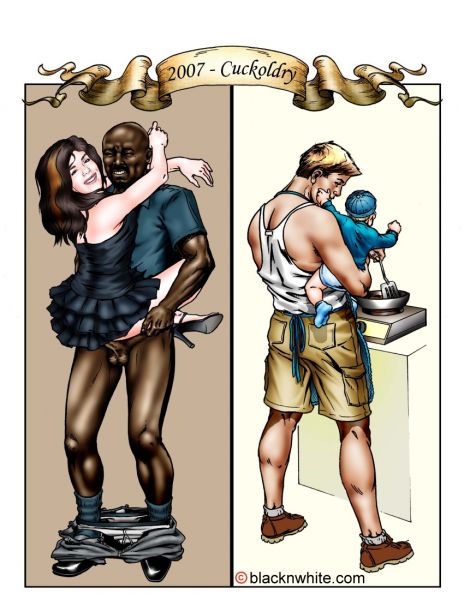Effective Ways to Explore Mind Control Comics in 2025: Discover Captivating Stories and Art
As we delve into the realm of mind control comics in 2025, it's essential to recognize their compelling narratives and the artistic mastery behind them. This genre weaves psychological manipulation with thrilling plots, creating enticing adventures that resonate with readers of all ages. The exploration of psychological thrillers and the subversion of character dynamics enrich the stories found within these pages. From mind-controlled heroes to cunning mind control villains, the landscape of comics continues to evolve, pushing the boundaries of storytelling and character development.
In this article, we will journey through various facets of mind control comics, addressing prominent themes and techniques while highlighting the essence of graphic novels focused on this intriguing subject. We will also examine the ethical implications surrounding mind control technology and its representation in the comic book universe. By the end of our exploration, you'll gain insights into the captivating stories, mind games, and artistic styles that define this genre.
Stay tuned as we navigate through the intricacies of mind control narratives, dissecting their narrative structures and the psychological themes that underpin these compelling tales.

Key Themes in Mind Control Comics
Building on our introduction to the world of mind control comics, we can identify several key themes that serve as cornerstones of the narratives presented. Central to these stories are concepts like psychological manipulation, the balance of power dynamics, and the ethical dilemmas faced by both heroes and villains alike.
Exploring Psychological Manipulation
The theme of psychological manipulation stands at the forefront of many mind control comics. By examining characters who wield mind control powers, we can better understand how their abilities shape the world around them. These narratives can showcase the implications of domination, raising questions about consent and free will.
For instance, in several graphic novels, we witness characters who are unwillingly subjected to brainwashing or hypnosis comic stories that highlight the internal conflicts faced by mind-controlled individuals. This blend of comic book psychology with intense storytelling leaves readers contemplating the nature of control in their own lives.
Power Struggles and Moral Dilemmas
The battles between comic book characters are often central to the narrative arcs. Many heroes and villains experience shifts in power dynamics that challenge their moral compass. The morality of using mind control technology raises essential questions about the ethics of such abilities. Does the end justify the means? Do characters lose their humanity when they yield to mental domination?
An excellent example of this is found in narratives where heroes grapple with their own abilities to manipulate minds versus their duty to protect the innocent. Such power struggles not only provide dramatic tension but also serve as a conduit for deep character exploration.

Cultural Impact of Mind Control Comics
With these themes established, we can explore how mind control comics have impacted broader culture and influenced storytelling techniques beyond their pages. This genre provokes thought on the very nature of control, shaping public perceptions through visual storytelling.
Social Commentary Through Graphic Novels
Mind control comics often serve as a subtle means of social commentary, reflecting societal fears and anxieties regarding manipulation and autonomy. As a result, comics have become a lens through which audiences can examine real-world issues, such as government surveillance, psychological trauma, and the complexities of power structures.
These narratives resonate on multiple levels, allowing readers to reflect on their interactions with authority and the implications of unchecked control. In creating dystopian mind control narratives, authors challenge conventions and provoke critical thought about reality.
Character Development and Complexity
The most compelling mind control comics feature dynamic character arcs that explore the influences of psychological manipulation on individual motivations and relationships. A mind-controlled character often battles internally, questioning their identity and purpose, contributing to character complexity.
As readers invest in these character journeys, they witness transformations that reflect broader themes of redemption, resistance, and the quest for freedom. Such developments play into the totality of a character's backstory and motivations, enriching the overall narrative experience.
Exciting Story Arcs Featuring Mind Control
Exploring the best comic story arcs featuring mind control unveils some of the most celebrated tales. Highlighting both mainstream and indie creations, we will discover how authors employ various narrative devices to engage audiences with their thrilling adventures.
Spotlighting Iconic Comics
Several iconic comics immerse readers in universes driven by psychological tension. Titles that involve a mind control subplot often delve into the deeper workings of the human psyche, providing insights into characters’ actions and the plausibility of their decisions.
Examples of notable titles may include storylines that explore the dualities of mind control, accentuating the struggle between supervillains and their superhero counterparts. Through the lens of mind manipulation, readers engage in the moral ambiguities that characterize these epic encounters.
Innovative Techniques in Storytelling
Many contemporary authors leverage innovative storytelling techniques to heighten the immersion of their narratives. Elements such as varying perspectives, non-linear timelines, and the incorporation of visual subtext enrich the reading experience. This genre's strength lies in its ability to make the readers question reality themselves, a brilliant blend of graphic novels and interactive engagement.
The Role of Art and Illustration in Mind Control Comics
Artistic expression in mind control comics is not merely a supplement; it is pivotal to conveying narratives and emotions. Illustrators use visual storytelling to evoke responses that resonate with readers, amplifying the psychological themes that arise in these pages.
Art Styles That Create Immersion
Distinctive art styles contribute significantly to the emotional undertones of comic book narratives centered around mind control. For example, dark, surreal illustrations can often highlight the psychological horror associated with mind control, while bright and exaggerated styles can subvert expectations and create a sense of irony.
The visual representation of supernatural powers and comic book brainwashing is essential to how readers perceive these stories. The marriage of art and narrative invites audiences to interpret the world uniquely.
Drawing Psychological Drama
Effective illustration captures the essence of psychological struggle. By depicting internal conflicts through facial expressions and body language, artists immerse readers in the emotional journeys of characters. This technique plays a crucial role in showcasing comic book adaptations of mind control stories, emphasizing the link between visuals and character arcs.
Engaging with Comic Book Communities
With our exploration thus far, it becomes clear that mind control comics resonate deeply within comic book communities. The shared enthusiasm for storytelling and artistry fosters vibrant discussions around interpretations and character development.
Collaborating on Story Analysis
Various online platforms provide opportunities for readers to share their experiences and thoughts about comic book analysis. Participating in these communities allows fans to dissect the techniques, tropes, and narratives of their favorite mind control stories.
Through engaging conversations, comic enthusiasts can uncover hidden meanings and appreciate the intricate planning behind the creation of these dynamic worlds.
Exploring New Releases
Fans of mind control comics can take advantage of resources available on platforms like HeroPoint, which frequently highlights recent releases, analyzing motives and developments in new titles. Monitoring these changes keeps audiences informed about upcoming plots and story arcs, ensuring no pivotal narrative goes unnoticed.
Conclusion
In 2025, exploring the world of mind control comics offers an amalgamation of thrilling narratives, psychological depth, and artistic innovation. From the ethical dilemmas surrounding manipulation to the enthralling character arcs, these comics challenge readers to confront their understanding of control, free will, and morality.
By engaging with these stories and joining communities dedicated to sharing insights, fans can delve deeper into the rich narratives surrounding comic book mind control themes. With each story and every illustration, the exploration of mind control comics proves to be not just a journey through fiction, but also an exploration of the intricate dynamics of our own realities.
